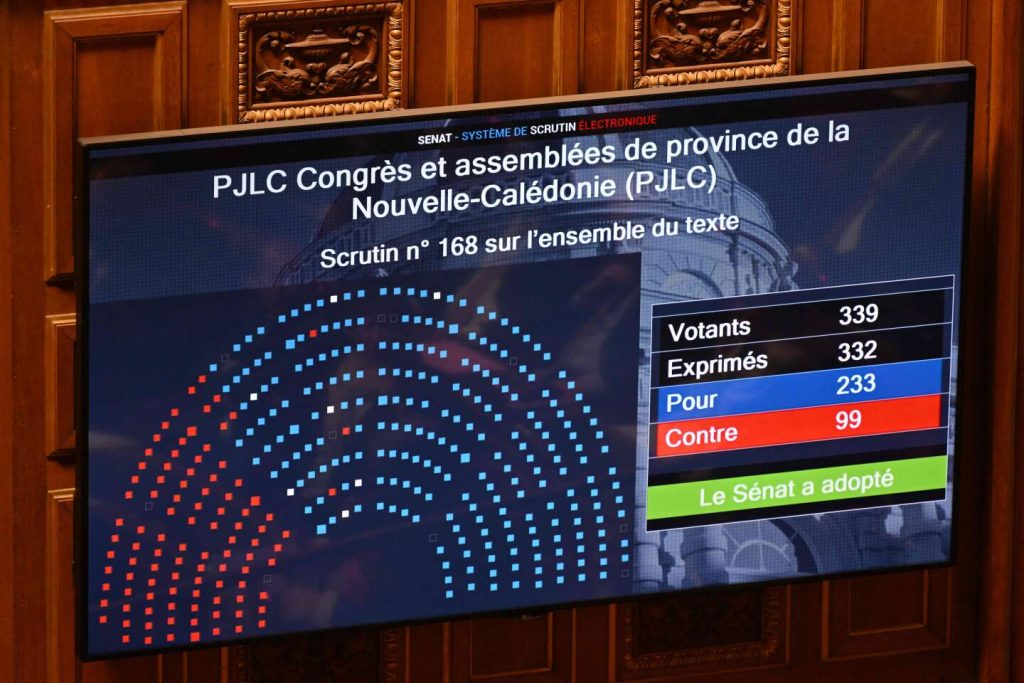The Senate approved a sensitive constitutional amendment on expanding the electoral body for provincial elections in New Caledonia, leading to increased tensions between loyalists and independence supporters on the archipelago, which is currently facing a deep economic crisis. The amendment allows all native-born New Caledonians and residents who have been living on the island for at least ten years to vote in provincial elections, which are crucial as the three provinces hold significant powers. The electoral body for these elections has been frozen since 1998, depriving nearly one in five eligible voters of their voting rights. The Senate, dominated by a right-center alliance, passed the constitutional amendment in its first reading with 233 votes in favor and 99 against, despite opposition from three leftist groups who criticized the government’s forceful approach.
The constitutional amendment must now be adopted in the same terms by the National Assembly before it can be approved by all parliamentarians in Congress at Versailles in early summer, requiring a three-fifths majority of the votes cast. The legislative process, happening thousands of miles away from Noumea, is closely tied to a highly volatile local context. The future institutional status of New Caledonia remains uncertain as negotiations between independence movements and loyalists have been on hold for several months, while the next provincial elections are scheduled to take place before December 15th. The economic situation is also delicate, with the nickel industry facing challenges and a controversial fuel tax proposal that was ultimately withdrawn after days of fuel depot blockades.
Thousands of supporters of New Caledonia’s independence rallied in Noumea against their perceived marginalization, opposing the constitutional amendment that could shift the political balance against them. Interior Minister Gerald Darmanin defended the amendment as a balanced compromise that respects democracy and France’s international commitments. However, criticisms from opposition parties, especially the left, have highlighted the government’s unilateral approach, with calls for a comprehensive local agreement on the archipelago’s institutional future to prevent sparking unrest. Amendments proposed by the Senate, the largest political force in the chamber, aimed to ease the electoral process by allowing for suspension until the final ten days before the elections if a global agreement is reached.
The Senate’s approval of the date for the elections, no later than December 15th, was accompanied by amendments to facilitate the process, contrary to the government’s recommendations. The aim was to avoid setting a strict deadline, which could be seen as an ultimatum locally, allowing room for negotiation between the parties at any time. While the principle of unfreezing the electoral body seems to have overall support in Parliament, the government’s perceived lack of transparency and consultation has caused divisions and highlighted the urgency of reaching a comprehensive agreement on New Caledonia’s future. The delicate balance between political, economic, and social factors on the archipelago underscores the need for cautious and inclusive decision-making processes to prevent further escalation of tensions.


